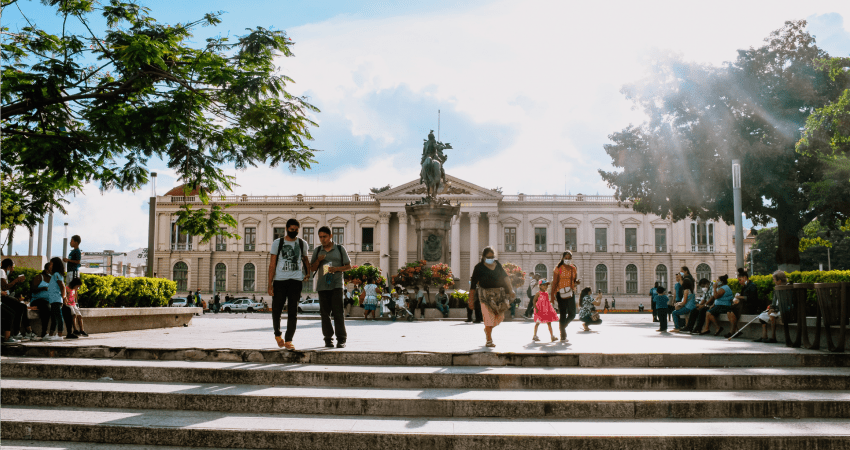IOM and RCM Strengthen Local Government Capacities in Mesoamerica with Policy and Governance Training Program

Understanding that good migration governance requires coordination between the different levels of government (local, national, and regional), the Regional Conference on Migration (RCM) and the International Organization for Migration (IOM) designed a program to strengthen the capacities of local actors in the design, implementation, and evaluation of migration public policies. Carried out during August 2021, this activity allowed 75 representatives of central government institutions and local governments from 9 RCM member countries, plus Colombia, Ecuador, and Brazil, to exchange and strengthen their capacities in local migration governance.
The Training Program on Migration Policy and Governance with a Focus on Local and Municipal Levels consisted of the virtual module Migration Trends in Latin America and three synchronous sessions.
At the opening session, Alejandro Guidi, IOM Senior Advisor for the Americas, mentioned that "usually, migration has been addressed as a phenomenon that occurs between nations, and the general perception is that the responsibility for its management lies solely on governments at the central level, and that the role of local governments is limited to the implementation of policies. However, this notion that migration management is confined solely to border management, ignores key aspects, such as the socio-economic integration of migrants and returnees, therefore local governments are assuming an increasingly important role".
In the first synchronous session, participants enjoyed a panel with representatives of the local governments of Costa Rica and El Salvador, and the Federation of Local Governments of Latin America (FLACMA), who addressed the main needs and priorities identified for local migration governance.
"We have formed an intersectoral municipal committee, made up of IOM, the Foreign Ministry, the municipality, charities, inter-institutional cooperation agencies and departmental cabinets," said Claudia Escobar, representative of Metapán, the largest municipality in El Salvador. "At the moment we are developing a public policy proposal, but we are also betting a lot on prevention, informing communities about the risks they may encounter when migrating, and a municipal job bank to support migrants returning to our municipality".
Subsequently, a space for group work made it possible to collectively build some recommendations from the perspectives of communities of destination, origin, return and transit, such as the need to build capacities, strengthen inter-institutional cooperation, address the structural causes of migration, and enhance the integration and reintegration processes of migrants.
In the remaining synchronous sessions, participants learned about the methodology of migration governance indicators (MGI), a comprehensive IOM tool that was created to support countries in implementing target 10.7 of the 2030 Agenda for Sustainable Development and explored success stories in Latin America on local migration governance and socio-economic integration initiatives for migrants.
"What we seek with this type of training is that through the tools and discussions that arise from such rich spaces, the national and local policies of the countries manage to address each of the contexts and conditions", said teacher Rocío González Higuera, head of the Migration Policy, Registration, and Identity of Persons Unit of the Ministry of the Interior of Mexico, on behalf of the pro tempore presidency of the RCM.
"The interest of this RCM presidency is to build frameworks that can be used at all levels of government, for the care, protection and defense of the human rights of people in contexts of migration, emphasizing that governments in the region have shared challenges that must be addressed together", she added.
This activity was conducted within the framework of IOM’s Western Hemisphere Program, funded by the United States Department of State Bureau of Population, Refugees and Migration. For more information, please contact Fabio Jimenez at jfjimenez@iom.int.
